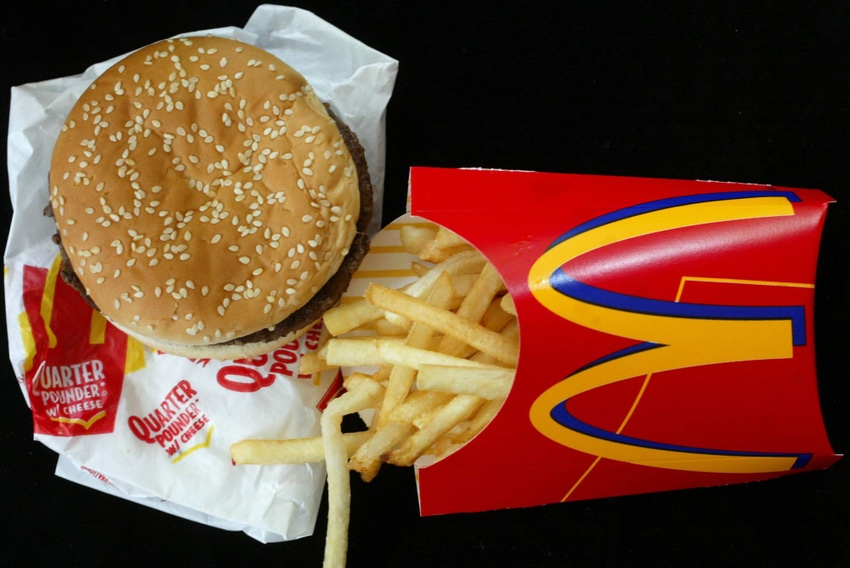McDonald's to reduce greenhouse gas emissions
Hamburger giant McDonald’s wants your help in cutting greenhouse gas emissions. What does that mean for beef producers?

Hamburger giant McDonald’s this week announced some ambitious targets to reduce greenhouse gas emissions related to their restaurants. Partnering with franchisees and suppliers, McDonald’s wants to cut its emissions by 36% by 2030, using 2015 as the base year. Additionally, McDonald’s commits to a 31% reduction in emissions intensity (per metric ton of food and packaging) across its supply chain.
In its announcement, McDonald’s says it expects to prevent 150 million metric tons of greenhouse gas emissions from being released into the atmosphere by 2030. “This is equivalent of taking 32 million passenger cars off the road for an entire year or planting 3.8 billion trees and growing them for 10 years,” according to the announcement.
READ: How does the carbon footprint of U.S. beef compare with global beef?
As it relates to beef production, the McDonald’s announcement had this to say: “To reach its target, McDonald’s will work across its supply chains, offices and restaurants to be more innovative and efficient …by elevating and supporting sustainable agricultural practices. In collaboration with thousands of franchisees, suppliers and producers, McDonald’s will prioritize action on the largest segment of its carbon footprint: beef production, restaurant energy usage and sourcing, packaging and waste. These segments combined account for approximately 64% of McDonald’s global emissions.”
However, the announcement leaves some unanswered questions, says Sara Place, NCBA senior director for sustainable beef production research. “How much of that target is actually coming from beef versus the other commodities they use? How much is coming from the United States versus their global supply chains?” And remember, greenhouse gas emissions are just one part of the overall sustainability issue. How does this announcement fit with McDonald’s larger sustainability efforts?
READ: Commitment to sustainability: Nothing new for ranchers
Place points out that the U.S. is far ahead of the rest of the world in reducing greenhouse gas emissions. “We can be 10 to 50 times lower in our carbon footprint here in the U.S. compared to other countries. So the way forward in terms of trying to lower emissions in the United States looks very different than a country like Brazil, or any other region of the world.”
Place reminded me that the U.S. beef industry has already made great advances in reducing its carbon footprint. For example, Jude Capper’s research comparing the 1977 beef industry with 2007 revealed a 16% drop for beef production. “And we’ve seen that in some of the checkoff-funded research, of decreasing our emissions over time,” she says. Place credits the work that the men and women who produce beef do every day to become more efficient.
Given that beef is at the core of what McDonald’s does, how the company goes about achieving its targets will very likely impact you. At this point, however, those specifics aren’t available and may not even be developed yet. But make no mistake, U.S. beef producers have a mighty big stake in what happens as McDonald’s moves forward.
About the Author(s)
You May Also Like


.png?width=300&auto=webp&quality=80&disable=upscale)
